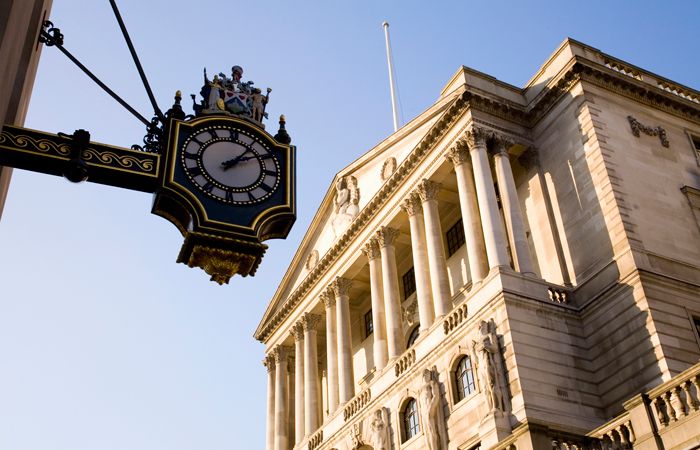
The Bank of England’s Monetary Policy Committee has held base rate at its record low of 0.1% today, as well as maintaining quantitative easing at £895bn.
The Bank cut interest rates to current levels in March last year as the scale of the pandemic became clear.
Killik & Co associate investment director Rachel Winter says: “In a bid to reignite the economy before the UK is scheduled to fully reopen next month, low interest rates will remain a prime catalyst in turning savers into spenders. In the upcoming months, the Bank of England will be hoping that people loosen their grip on the purse strings and start spending their lockdown savings.
“Government intervention in borrowing such as the mortgage guarantee and breathing space schemes should start to ease tentative borrowers’ concerns.
“Already it seems as though this strategy is building momentum as recent Bank of England figures show that mortgage borrowing reached record highs and UK households have repaid more bank loans than they have taken out.
“However, despite this, many will have grimaced at the thought of continual low rates.
“Cash could be sitting idly in saving accounts for a while, so staunch savers and those nearing pension age should start to look for alternative investments to reap more satisfactory rewards.”
Asset Intelligence investment consultant Kel Nwanuforo adds: “The Bank of England’s Monetary Policy Committee has opted to maintain the status quo, marking 14 months since rates were cut to a record low in the face of the pandemic.
“However, while major policy changes are unlikely, we think the Bank of England could be tempted to join its Canadian counterpart in tapering asset purchases within the next few months.
“If growth is maintained, and the unlocking of the economy stays on course, the impact on readings such as inflation will likely be significant given last year’s comparative figures, and this could lead the Bank to reassess aspects of its overall policy stance.
“For investors, things remain as they were for now – cash offers an almost guaranteed negative return because of inflation, while yields on fixed income look increasingly challenged by rising inflation expectations.”



